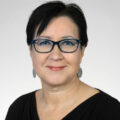
Urban Karelianity
Diverse Karelian Identities and Subcultures
Leaders
Urban Karelianity is a research project funded by the Karjalaisen Kulttuurin Edistämissäätiön (KKES), which aims to open new perspectives to the research concerning Karelian identities. The purpose is to see Karelia in a fresh perspective: through the eyes of the urbanised generations born after the Second World War. The focus of the project is in the future more than in the past, although it is recognised, that history is always present in all our actions. This is especially true when it comes to identities and the experiences and heritage of the previous generations.
The conjunctive question in the three sub-researches of the project is how the third and fourth generation of the (young) urbanized Karelians on the other hand and the elderly generations adjusted in the cities on the other see, experience, describe and determine the identities and significances connected to the urban Karelianity. The timeframe of the research are the experiences in the 20th and the 21st Centuries the focus being on the most recent history. Geographically examination covers the entire Finland concentrating most likely however in the urban communities in the Eastern and Southern Finland, where most of the Karelian descendants live. As for the scientific disciplines the project is focused on Finnish history, ethnohistory and cultural studies. Methodically qualitative and empirical approaches are used while studying the recent past, and the focus is in the close reading and discourse analysis of oral history sources, interviews and surveys. One part of the source material is an oral history collection Karelianity in the 21th Century (2018–2019) conducted with the Finnish Literature Society.
Urban Karelianity Project wants to speed up the initialization of new research angles and shift the focus to places, where present-day Karelians live: to the cities and semi-urban areas, the borderlands of urban and agrarian space. New digital sources and platforms are also used besides the traditional archival material.
Cooperation
Keywords
Leaders
Post-doctoral Researchers
Doctoral Researchers
Publications
3 items-
"Syrjitty vähemmistö" - Karjalaisnuorten aktivismi
Selin, Sinikka; Lähteenmäki, Maria; Neuvonen, Anssi; Ilmolahti, Oona. 2023. Historiallinen aikakauskirja. 121: 5-18 -
Helsingin moninaiset karjalaiset muistin paikat
Neuvonen, Anssi; Lähteenmäki, Maria; Ilmolahti, Oona; Selin, Sinikka. 2022. Elore. 2021; 28: 26-49 -
Biteillä maalatut omakuvat urbanisoituneessa Karjalassa
Ilmolahti, Oona; Lähteenmäki, Maria; Selin, Sinikka; Neuvonen, Anssi. 2021. Historiallinen aikakauskirja. 119: 51-65

